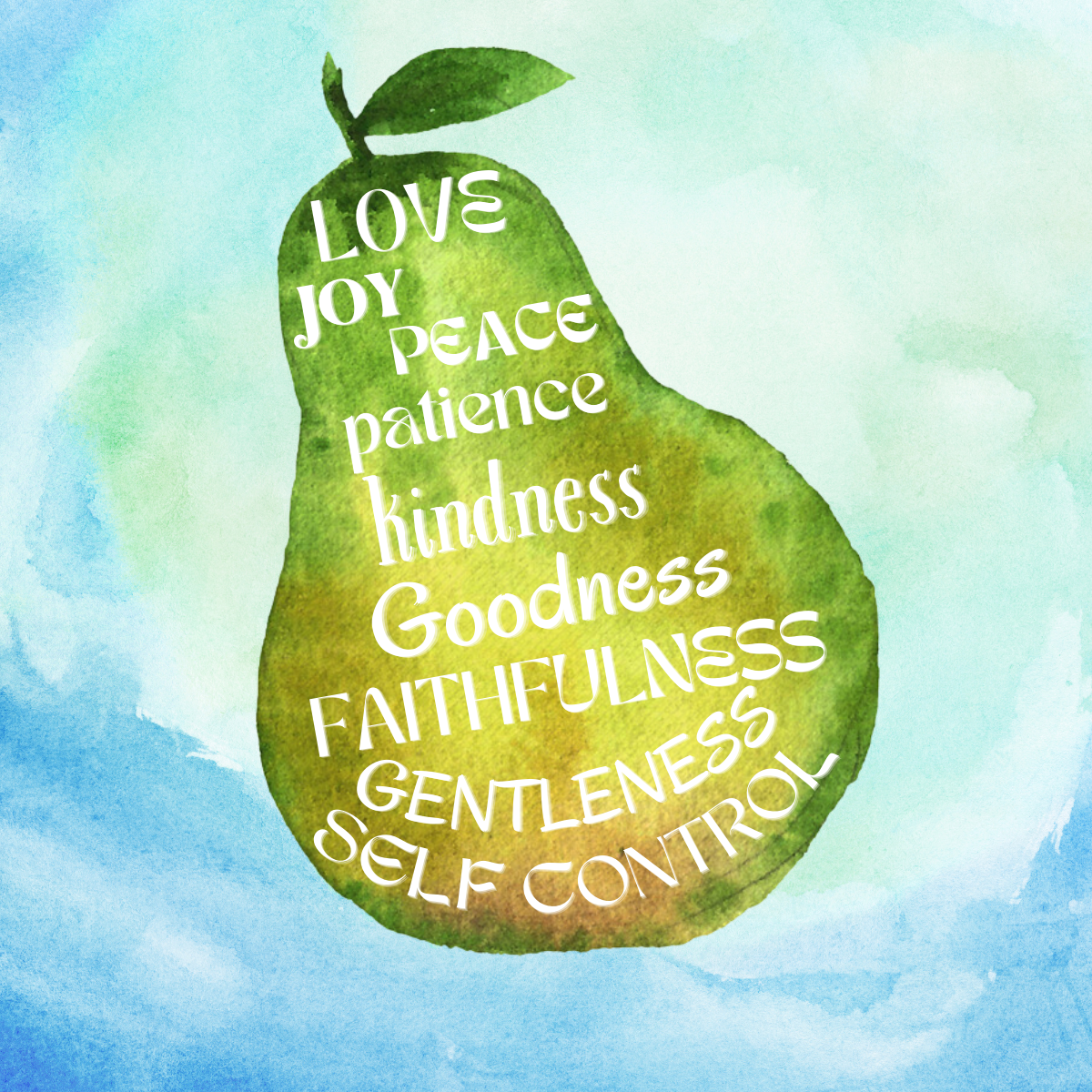
Cultivating a Fruit Full Life in the Spirit
Cultivating a Fruit Full Life in the Spirit
Now that Pentecost has come and gone, what difference does the Holy Spirit make in our lives? What kind of person are you striving to be? For those who are followers of Jesus, the answer is the same today as it was for Paul’s original audience in Galatia. We are people who cultivate and exhibit the fruit of the Holy Spirit: love, joy, peace, patience, kindness, goodness, faithfulness, gentleness, and self-control. This post-Pentecost summer worship series will explore each of these attributes as we open ourselves to allow God to grow the juiciest, ripest spiritual fruit in us. Join us as we become the fruit full people God created us to be.
June 4 The Greatest of These: LOVE
Galatians 5:16-25; I John 4:7-13; I Corinthians 13:4-8a, 13
It’s no coincidence that love is the first fruit of the Spirit. Love is the very essence of who God is and the source of all other spiritual fruit. But this is not just any love, it’s agape love. It’s a love rooted in attitude and action, not emotion and feeling. If every person lived a life of agape love, there would be no need for rules, laws, or courts. If all Christians lived a life of agape love, everyone would know God better. Love is the greatest of all: it’s the greatest commandment, the greatest fruit of the Spirit, the greatest attribute of God, and the greatest way to live in this world.
Reflection Questions: When was a time you demonstrated agape love? Why do you think love is the essence of who God is and the heart of the Christian way of life? In what ways is love a tool for evangelism? Can you think of an example? How will you cultivate the spiritual fruit of agape love in your life?
June 11 I’ve Got the JOY, JOY, JOY, JOY
Jesus invites all those who follow to abide in him like branches on a vine. Those branches will bear fruit, the fruit of love and the fruit of joy. Joy isn’t the same as happiness, and many times, joy lives in the midst of sorrow. Jesus promises his full joy to us even as he faces death. How do we feel the strength of God’s joy in trying times? How do we cultivate the fruit of joy when life is hard?
Reflection Questions: What is the difference between the spiritual fruit of joy and happiness? What people do you know (perhaps including yourself) who have gone through suffering but still exhibit the fruit of joy? How are love and joy connected? How do you keep joy in your heart when life is hard? When have you felt the strength of God-given joy?
June 18 Passing the PEACE
John 14:25-27; Philippians 4:4-7
Love, peace, and joy often appear together in different combinations. In the Hebrew, shalom doesn’t just mean peace, but wholeness, completeness. We often think of it as the absence of conflict, but biblical peace is so much more. Jesus gives us his peace, a peace that passes all understanding. Yet, this world provides so many obstacles to peace: worry, fear, conflict, greed, anger. How do we cultivate the fruit of peace in our lives and then pass that peace on to others?
Reflection Questions: What do you see as the relationship between love, joy, and peace? In what ways can you cultivate the fruit of peace in your life? If peace isn’t just the absence of conflict, how would you describe it? How can you pass the peace, not just in worship but in this world?
June 25 Lord, Give Me PATIENCE…NOW!
Ephesians 4:1-3; Romans 8:24-25
In a fast food, fast paced, me-oriented society, patience is in short supply. We rush around, are short with others, and miss out on God’s gift of waiting. Patience is as much a virtue now as ever, but it’s also a characteristic of one who lives by the power of the Holy Spirit. This fruit of the Spirit is often paired with others characteristics, including hope. Scripture reminds us how God has been patient with us, and how we are called to be patient in suffering and patient with others. Be careful praying for patience, God just might give it to you.
Reflection Questions: In what ways has God and others been patient with you? What situations make you most likely to be impatient? What can you do to cultivate the fruit of patience in those times? Why do you think patience often shows up in a list with other Christian attributes?
July 2 Random Acts of KINDNESS
Ephesians 2:4-7; Luke 6:32-36; Ephesians 4:31-32
Kids are taught from early on to be kind to others: share, play nice, don’t hit. Decades later we are still learning the same lesson. Why is it so hard to be kind? Especially when studies show that kind people are happier, healthy, and live a more fulfilled life. Like all the other fruits, kindness is an attribute of God that we are to express to others. Mother Theresa encouraged, “Be the living expression of God’s kindness.” Kindness begins with God that then flows through us out into the world.
Reflections Questions: In what ways have you experienced the kindness of God in your life? Is there any difference between kindness as a fruit of the Spirit and just “being nice?” Who will you show “the kindness of the Lord” to this week?
July 9 God Is GOOD(NESS)…All the Time!
Psalm 145:8-9; Mark 10:17-18; Luke 6:43-45
When Jesus is called a good teacher, he is quick to respond, “No one is good but God alone.” As Christians we have tasted the goodness of God. Now the Spirit longs to produce good fruit through us as we engage in good works. In Greek, goodness and generosity are the exact same word. When we are generous in meeting people’s needs, we are sharing the fruit of goodness. But this fruit only comes from a good heart. Goodness begins within.
Reflection Questions: How would you describe the differences and similarities between goodness and generosity? Have you experienced the goodness of God ALL the time, even in hardship? How will you intentionally cultivate good things to flow from your good heart? What are some good works that you can do this week?
July 23 Well Done, Good and FAITHFUL Servant
Psalm 89:1-8; James 2:14-18, 26; Matthew 25:19-23
While faith is a belief in God, faithfulness is that faith lived out. When James mentions faith without works is dead, we could substitute faithfulness for works. Faithfulness goes by many other names: integrity, trustworthy, dependable, loyal. This fruit of the Spirit applies not only to our faithfulness to God but also in our relationships, workplaces, and life in general. Servants of God are faithful when they invest their gifts, talents, and lives for God’s Kingdom. As with the other fruits, our ability to be faithful is rooted in God’s steadfast faithfulness to us.
Reflection Questions: What is the difference and the connection between faith and faithfulness? Which of the servants do you identify with and why? When have been times you have known God’s faithfulness? What are the “talents” God is asking you to invest in this world?
August 6 The Strength of GENTLENESS
Gentleness is often interpreted as weakness or passiveness, becoming like a doormat for others to walk over us. It is very similar to meekness and humility. However, as Jesus exemplified, gentleness takes strength in the midst of adversity. It is strong at its core while soft on the outside. In an age where gentleness is lacking, whether in politics, social media, the workplace or playground, how might we cultivate the fruit of gentleness in our interactions with others?
Reflection Questions: What are the reasons people aren’t gentle toward others? How might you extend gentleness to yourself as well as others? When do you find it most difficult to be gentle with others? Are there other images that come to mind when you think of gentleness?
August 13 SELF-CONTROL: A Gift to Your Future Self
Galatians 5:16-25; 2 Peter 1:5-8; Titus 2:11-13
Self-control means having power over your body’s desires and passions. It will determine the outcome of the battle between flesh and spirit. Without self-control, it is impossible to succeed in anything, whether in sports, weight goals, relationships, or career. That includes the spiritual life. Society calls this having will power, but is that the same? As we close out our worship series, we end with the fruit that’s necessary to make all others possible. Only when we cultivate the fruit of self-control can the other fruits be grown in us.
Reflection Questions: In your life where do you struggle with self-control? What is the difference between will power and the fruit of self-control? Why are all the other fruits dependent upon self-control? Looking back on the series, what is the fruit of the Spirit you most want to cultivate in your life and how will you do it?

